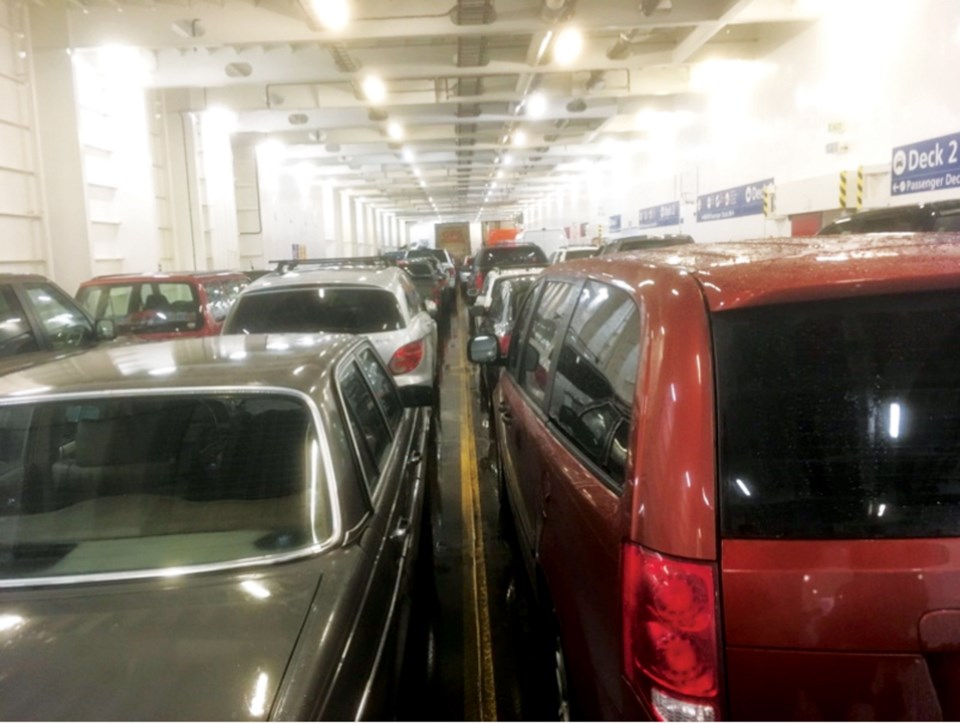BC Ferries says it will stick with a “soft” approach to enforcing Transport Canada rules around remaining in vehicles on the lower car decks for now, but it’s considering options for cracking down if necessary.
Although the regulation has been in place for years, BC Ferries only started enforcing it last October after pressure from Transport Canada.
In a recent Coast Reporter story about dog owners’ objections to the car deck restrictions, one person said she was threatened with being “written up” and banned from travelling on BC Ferries if she refused to leave her vehicle (see “Ferry regulation causing a dogfight,” May 25).
Questions around BC Ferries’ enforcement policy were raised at the June 6 meeting of the Southern Sunshine Coast Ferry Advisory Committee in Sechelt.
“I don’t see it posted anywhere,” chair Diana Mumford said. “So people are in the dark about what that process is and under what authority that is happening.”
Lance Lomax, BC Ferries’ marine superintendent, said a travel ban is one option under consideration.
“We [would] take down a licence plate number [and] it’s sent to our OSC – operational security centre,” he explained. “After the second time there’ll be a warning letter sent to the owner of the vehicle. The third time there will be a letter which will cause a travel ban.”
ICBC is reviewing a request from BC Ferries to have access to vehicle owner information, and BC Ferries officials at the meeting said the details are still being worked out.
In a follow-up with Coast Reporter, BC Ferries manager of public affairs Darin Guenette said, “At this time, BC Ferries is not moving to a process where we will be enforcing this regulation by issuing travel restriction letters to customers who are non-compliant… However, if our onboard employees are harassed while informing customers of their responsibilities around this regulation, we will consider restricting travel privileges.”
That approach is consistent with the company’s Terms and Conditions of Carriage, which include barring people from using the service for refusing to follow safety instructions from the crew.
Lomax said BC Ferries has tried to avoid being heavy-handed and emphasize education over enforcement, but “we’re getting to a point where Transport Canada are now saying, OK, enough is enough.”
He also said Ferries has tried to get Transport Canada to make an exception for the Langdale-Horseshoe Bay crossing, but without success.
The committee also heard that BC Ferries is still offering to do its best to accommodate travellers who feel they need to be on the upper deck, where the restriction does not apply, but has done away with using orange cards to identify drivers who request the upper deck.
Chris Morris, regional manager of terminal operations, told the committee the card system was leading to confusion and occasional conflicts with BC Ferries staff.
“Even though the policy was right on the orange card that it was not a guarantee and the ticket agent would explain that when handing out the orange card, what we saw was people were driving and waving their card and just about having a rear-ender and getting out of the car and yelling at employees,” he said.
Morris also said reservations are not a guarantee of loading on the upper deck, but only a guarantee you’ll get on the boat.



